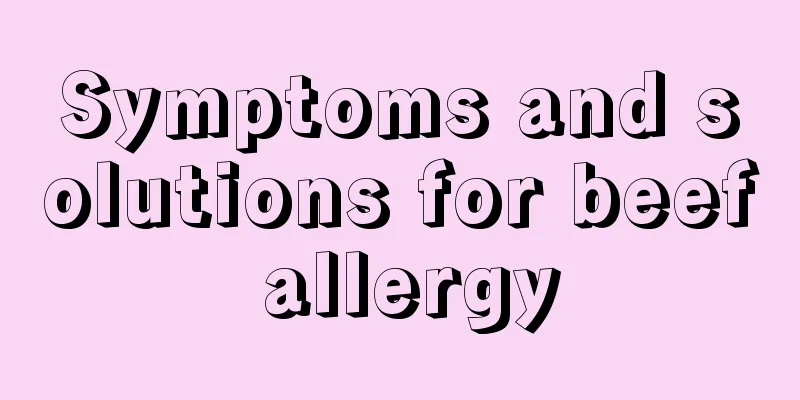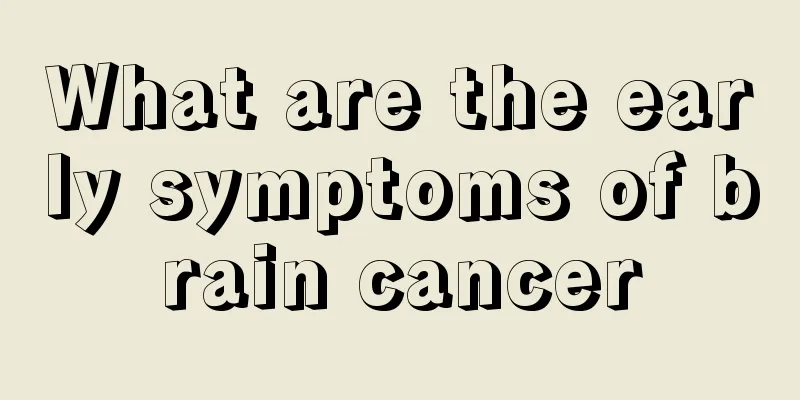Symptoms and solutions for beef allergy

|
Beef is delicious and highly nutritious, but not everyone is suitable for eating beef as a tonic. In life, we often see some people experiencing allergic symptoms after eating beef. There are even some people who have eaten beef before without any allergies but suddenly develop an allergy after eating it one day. In fact, not only beef, but any food may cause allergic reactions. Therefore, what we need to know is how to deal with allergic symptoms after they occur. What are the symptoms of beef allergy? Beef is a high-protein food. According to Chinese medicine, beef can replenish essence and blood, warm the meridians, nourish the spleen and stomach, strengthen tendons and bones, and reduce swelling and promote diuresis. Eating beef can help improve symptoms for people who suffer from insufficient vital energy, deficiency of both qi and blood, physical weakness and long-term illness, pale face, and swollen face and legs. Traditional Chinese medicine believes that beef is warm in nature, sweet in taste, and can warm the stomach, so it is regarded as an excellent tonic in the cold winter. But everything has two sides. When taking supplements, you should also pay attention to the combination of foods. Improper combination may cause problems. The onset of food allergy symptoms varies from person to person. It can occur within minutes to hours after eating. 90% of food allergy symptoms mostly occur within 1 hour of eating. The main symptoms include skin redness and itching, atopic dermatitis, gastrointestinal discomfort, diarrhea, vomiting, abdominal pain, redness and itching of the lips, swollen throat, sneezing, runny nose, difficulty breathing, wheezing, etc. Severe cases may even cause anaphylactic shock. Food allergy is an abnormal immune response of the immune system to a specific food. The immune system will produce a specific immunoglobulin E for this type of food. When this specific immunoglobulin E combines with food, it releases many chemicals, causing allergic symptoms such as skin redness, swelling, and asthma. Solutions for food allergies When symptoms of beef allergy appear, you need to stop eating it immediately and take necessary medication according to the specific symptoms. In addition, you can also improve your concentration in your daily life by: 1. Avoid therapy. That is, completely avoid consuming foods containing allergens. This is the most effective way to prevent food allergies. That is to say, after the allergen has been clearly identified through clinical diagnosis or based on medical history, the intake of this allergen food should be completely avoided again. For example, people who are allergic to milk should avoid eating all foods containing milk, such as ice cream, cakes, etc. that have added milk ingredients. 2. Process food. Through deep processing of food, the content of allergens in food can be removed, destroyed or reduced. For example, allergens in raw food can be destroyed by heating, or the physical and chemical properties and material composition of food can be improved by adding certain ingredients, thereby achieving the purpose of removing allergens. In this regard, the easiest and most common thing to understand is yogurt. Lactic acid bacteria is added to milk to break down the lactose in it, making it no longer a contraindication for people who are allergic to lactose. 3. Alternative therapy. Simply put, it means eliminating foods that contain allergens and replacing them with foods that do not contain allergens. For example, people who are allergic to milk can use goat milk, soy milk, etc. instead. 4. Desensitization therapy. Desensitization therapy is mainly aimed at foods that have high nutritional value and that certain susceptible people want or need to eat frequently. In this case, desensitization therapy can be used. The specific steps are: first dilute the food containing allergens 1000 to 10000 times, and then eat one portion, that is, first eat one thousandth or one ten thousandth of the food containing allergens. If no symptoms occur, the amount consumed can be increased day by day or week by week. |
<<: What to do if you can't open your mouth after eating betel nut
>>: What is the banana rice vinegar diet?
Recommend
How to recover quickly from muscle soreness?
Muscle soreness is a common phenomenon, and usual...
Things to note when treating gastric cancer
There are often some problems encountered during ...
What to do if you are allergic to alcohol
Many people like to drink. Appropriate drinking c...
What are the methods to relieve tired eyes?
Eyes are the windows to the soul. Eye health is v...
Causes of leg swelling due to breast cancer
If breast cancer causes leg swelling, the first t...
Sweating after taking medicine
The symptom of sweating after taking medicine dep...
What to do if acne appears on lips
Acne is a common phenomenon. The redness and swel...
What to do if you are constipated and always fart?
White-collar workers who always sit in front of c...
What are the important factors that cause colon cancer
Cancerous diseases that occur in the intestines a...
How long does it take for nasopharyngeal carcinoma to metastasize
How long does it take for nasopharyngeal carcinom...
Is colon cancer contagious after recovery?
Colorectal cancer is a general term for colon can...
Can teeth cleaning whiten yellow teeth?
Everyone wants to have a set of white and neat te...
What should I do if my cornea is inflamed?
As the saying goes: eyes are the windows of the s...
Disposable environmentally friendly tableware
As people's living standards continue to impr...
What does bronchospasm mean
What does bronchospasm mean? Bronchospasm is a ve...









